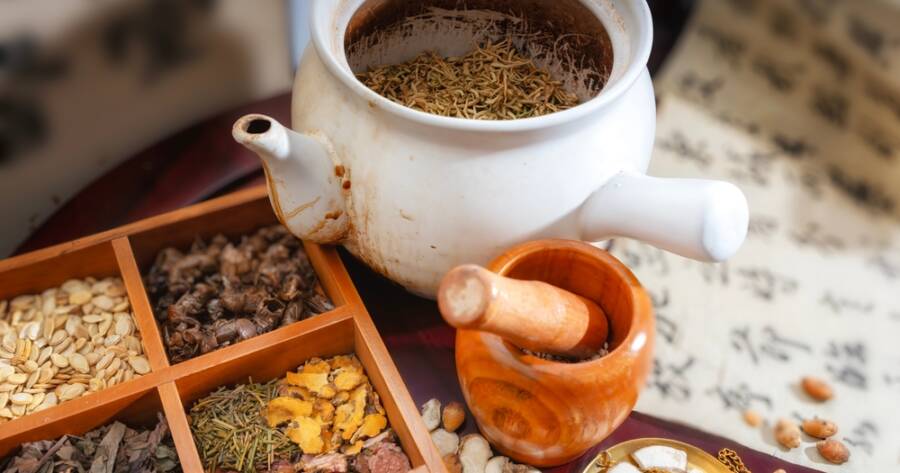Herbal teas have long held a cherished place in the cultures and kitchens of Europe. Each region boasts its own native plants and traditional brews, often passed down through generations for their soothing effects and wellness benefits. Whether you’re looking to ease digestion, calm your nerves, or boost your immune system, there’s a herbal tea from somewhere in the EU to meet your needs. Understand some of the best varieties and why they deserve a spot in your daily routine.
Chamomile from Germany: A Calming Classic
Chamomile, one of Europe’s most popular herbal infusions, has deep roots in German-speaking countries. Grown extensively in Germany, chamomile is prized for its calming properties and gentle floral aroma. Traditionally used to ease anxiety and promote sleep, chamomile tea is often recommended in the evenings or after a stressful day.
Its mild anti-inflammatory qualities also make it useful for digestive complaints, such as bloating or mild stomach cramps. For centuries, German households have turned to chamomile as a first remedy for both mental and physical tension. And thanks to its naturally caffeine-free nature, it’s safe and gentle for most people to drink regularly.
Peppermint from the UK: A Refreshing Digestive Aid
Across the United Kingdom, peppermint has long been used as a natural digestive remedy. Peppermint tea is known for its bright, cooling taste and its ability to help soothe an upset stomach. Whether after a heavy meal or as a mid-morning refresher, it’s a go-to in many British homes and herbal blends.
Studies suggest that peppermint may help reduce symptoms of indigestion, gas, and even mild nausea. Its menthol content helps relax the muscles of the gastrointestinal tract, making it a favourite for post-dinner comfort. Peppermint also contains natural antibacterial properties, which can benefit oral health and breath freshness.
Linden (Tilia) from Central and Eastern Europe: A Heart-Warming Remedy
In countries like Poland, Hungary, and the Czech Republic, linden flower tea—known locally as lipový čaj or herbata z lipy—is a traditional remedy during cold and flu season. Made from the blossoms of the linden tree, this tea has a mild honey-like flavour and is often consumed with lemon or honey for added relief.
Linden tea is believed to help reduce fever, promote relaxation, and ease mild coughs. It has mild sedative properties that can aid sleep, making it a common choice during the winter months when immune support and rest are especially important.
Many people in these regions grow up with linden tea as a household staple, often prepared by parents or grandparents as a first-line remedy during illness or emotional upset.
Thyme from the Mediterranean: A Powerful Herbal Protector
In the sun-drenched hills of Greece, southern France, and Spain, wild thyme grows abundantly—and it’s not just a culinary herb. Thyme tea has been used for generations to ease respiratory issues and strengthen the immune system. It’s packed with antioxidants and has natural antibacterial and antiviral properties.
Thyme tea is commonly consumed in Mediterranean households during seasonal transitions when people are more vulnerable to colds or coughs. Its strong aroma and slightly peppery taste may take some getting used to, but the benefits are significant—especially for the throat and lungs. Many also use thyme tea as a natural gargle for sore throats or oral care.
Nettle from the Nordics and the Balkans: A Nutrient-Rich Brew
Nettle tea might not sound appealing at first—after all, it comes from a stinging plant—but it’s widely appreciated in places like Slovenia, Estonia, and Finland for its nutritional content. Once dried, the sting disappears, and what’s left is a tea packed with vitamins A, C, and K, along with iron and magnesium.
People in rural and urban areas alike use nettle tea as a gentle detoxifying drink, known to support kidney function and reduce water retention. It’s often included in springtime rituals and herbal detox programmes, and its grassy, earthy flavour pairs well with lemon or mint.
For those looking to incorporate more plant-based nutrients into their day, nettle tea is an easy and beneficial choice.
A Cup of Tradition, Health, and Connection
Herbal teas across Europe are more than just drinks—they’re expressions of culture, tradition, and care. Whether served as comfort during illness, relaxation at the end of a long day, or part of a daily wellness routine, each herbal infusion carries with it centuries of local wisdom.
From the calming chamomile fields of Germany to the medicinal mountainside thyme of Greece, these teas offer gentle support for modern life’s challenges. By embracing these time-honoured brews, we’re not only nurturing our health—we’re also staying connected to the land and traditions of the European Union. So next time you fill your kettle, consider making it a cup of Europe’s natural goodness.

